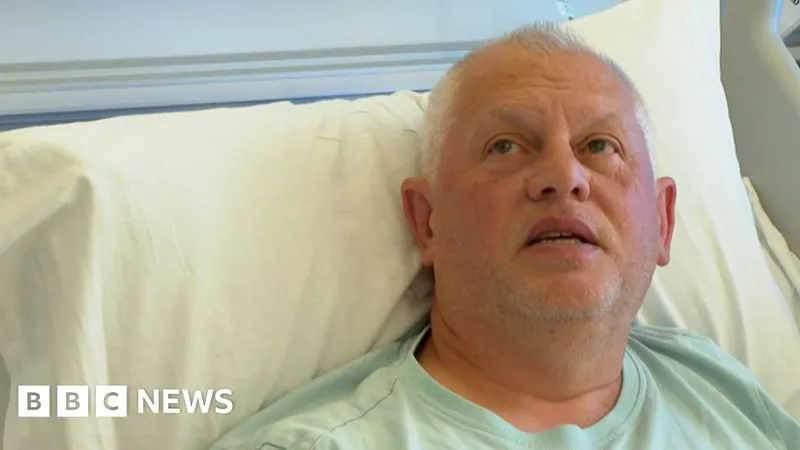
Breakthrough Study Reveals Hopeful Treatment for Parkinson's Disease Dementia
2025-06-30
Author: Amelia
In a startling new development, researchers might have uncovered a potential game-changer in the battle against Parkinson's disease dementia—a condition that grips nearly half of diagnosed patients within a decade, leading to debilitating effects such as memory loss, confusion, and mood changes.
A year-long clinical trial spearheaded by Dr. Stephen Pasternak of the Lawson Research Institute has taken a bold step by testing the cough medicine Ambroxol. This decades-old treatment, widely used in Europe, was examined for its ability to slow the cognitive decline in individuals suffering from Parkinson's.
Published in the esteemed JAMA Neurology, the trial engaged 55 participants with Parkinson’s disease dementia, scrutinizing their memory, psychiatric symptoms, and GFAP levels, a blood marker associated with brain damage. Participants were divided into two groups: one receiving daily doses of Ambroxol and the other a placebo.
Dr. Pasternak expresses optimism, stating, "Our goal was to shift the trajectory of Parkinson's dementia. This preliminary trial provides hope and lays a solid groundwork for larger studies ahead."
Key Insights from the Groundbreaking Trial
The findings were compelling, revealing that Ambroxol was safe, well-tolerated, and effectively reached therapeutic levels in the brain. Notably, while psychiatric symptoms escalated for those on the placebo, they remained stable in participants taking Ambroxol. Moreover, individuals with particular genetic variants showed marked improvements in cognitive performance when treated with Ambroxol.
A crucial indicator of brain damage, GFAP, increased in the placebo group but stabilized with Ambroxol, hinting at potential neuroprotection.
Despite its long-standing safety record in treating respiratory conditions—approved in Europe but not in Canada or the U.S.—Ambroxol might just be the unexpected ally in treating Parkinson's.
A Classic Drug with New Promise
Ambroxol’s connection to Parkinson's stems from its support of glucocerebrosidase (GCase), an enzyme linked to the GBA1 gene, often impaired in Parkinson's patients. Insufficient GCase leads to toxic waste accumulation in brain cells, resulting in damage.
Dr. Pasternak first learned of Ambroxol during his fellowship at The Hospital for Sick Children in Toronto, where it was utilized for treating Gaucher disease. His innovative approach involves leveraging this established treatment to potentially shield the brain in Parkinson's-related disorders.
He passionately states, "This research is crucial as Parkinson's dementia deeply impacts patients and their families. If Ambroxol can make a difference, it could deliver much-needed hope and enhance quality of life."
Backed by the Weston Family Foundation, this pioneering study marks a significant stride towards developing novel interventions for Parkinson's disease and associated cognitive disorders, including dementia with Lewy bodies. Dr. Pasternak and his team are gearing up to embark on a follow-up clinical trial focusing specifically on cognitive outcomes later this year.









 Brasil (PT)
Brasil (PT)
 Canada (EN)
Canada (EN)
 Chile (ES)
Chile (ES)
 Česko (CS)
Česko (CS)
 대한민국 (KO)
대한민국 (KO)
 España (ES)
España (ES)
 France (FR)
France (FR)
 Hong Kong (EN)
Hong Kong (EN)
 Italia (IT)
Italia (IT)
 日本 (JA)
日本 (JA)
 Magyarország (HU)
Magyarország (HU)
 Norge (NO)
Norge (NO)
 Polska (PL)
Polska (PL)
 Schweiz (DE)
Schweiz (DE)
 Singapore (EN)
Singapore (EN)
 Sverige (SV)
Sverige (SV)
 Suomi (FI)
Suomi (FI)
 Türkiye (TR)
Türkiye (TR)
 الإمارات العربية المتحدة (AR)
الإمارات العربية المتحدة (AR)